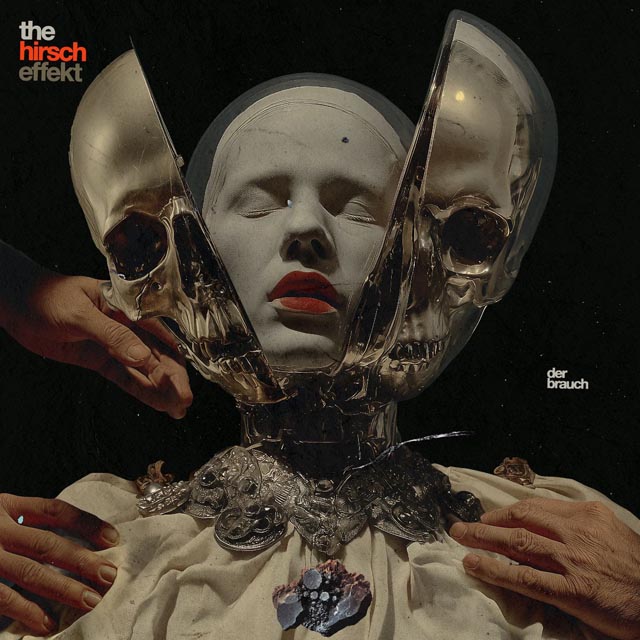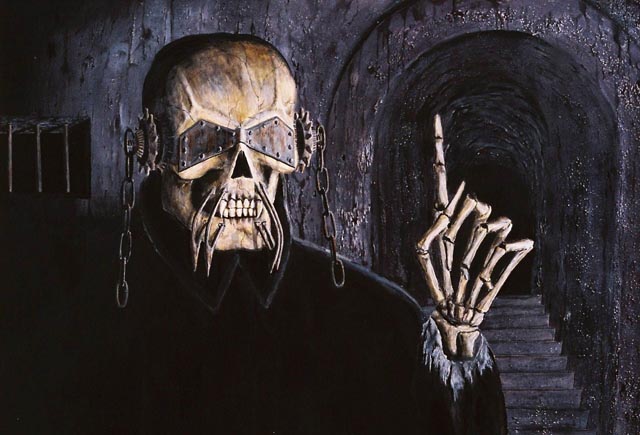
Heavy metal is in fashion. In case you haven’t already noticed it in the streets, there’s plenty of coverage out there in the metal blogosphere. If you followed all those links then you’ll know the subject of heavy music aesthetics being co-opted by mainstream fashion is well established and I’m not interested in beating a dead horse. Instead, the purpose of this article is to look at the cultural appropriation of heavy metal in general and why it’s (mostly) a good thing. Obviously, the immediate gut reaction of most in the metal community to seeing pop stars and celebrities decked out in black band tees and claiming a childhood of rocking out to the same music as us is one of overprotective derision.
Being part of a niche community and underground family is what defines us as people within the grander scope of society, and when we see those sturdy walls of division and differentiation begin to crumble we react with a sense of cultural xenophobia. But mainstream pilfering is also a sign of validation and acknowledgement of worth. After all, when we retreat from the ‘popular’ and the ‘accepted’ towards the things that actually speak to us on a personal level, what we are doing is saying: “This is what we are and it matters”. Regardless of any sense of trespass and the superficialness of aping fashion and aesthetics, any form of appropriation is, in essence, a reply of affirmation by the mainstream that yes, it does mean something and it is worthwhile.
There is, of course, the negative implications of appropriation in other areas of the music world, such as hip hop and rap, though heavy metal is largely free of the racial and ethnic baggage that comes with that often tone-deaf conundrum. Both mainstream music audiences and the heavy metal niche share an overwhelming majority correlation in regards to race (hint: white), and the only religious disparity between the two boils down to confused Christians with unresolved teen angst. It is also certainly worth noting that metal itself is the product of appropriation by way of proxy.

It’s no secret that the average heavy metal listener is generally open to outside music as diverse as folk, blues, and country, so why does the idea of a hip hop performer listening to and appreciating heavy music such a hard pill to swallow? Part of it probably has to do with the fact that musicians are inherently more open-minded to the broader music spectrum than the average listener is (just take an example from the Metal God himself compared to the reaction of metalheads at large over a pop star associating herself with the genre). If it’s perfectly acceptable for any metal artist to quote something as decidedly non-metal as Johnny Cash for inspiration, why can’t Rihanna name-drop Slayer? The argument that Cash is metal ‘in attitude’ doesn’t fly because one can draw just as many similar parallels between hip hop and metal.
The refusal of metalheads in general to accept acknowledgment from celebrities and mainstream music purveyors is simply a further extension of the ethos fans of underground bands and subgenres exhibit when refusing to accept acknowledgment in the broader genre of metal as a whole. If you want to go far enough down the psychology rabbit hole, it boils down to basic in-group/out-group sociology, the evolutionarily programmed mistrust of anyone outside one’s own close circle, which in turn fosters a societal propensity for insular cultural subsets. But this is heavy metal, so we can just leave it at: We don’t like other people playing in our playground.
So then, why now?
The mind-set that originally made metal a counterculture subset within the world of music was largely defined by 1) Letting loose, partying it up, and not giving a fuck (something hip hop does much better now), and 2) A calling for the alienated and misunderstood to rise and be proud (something no metal band nowadays can do with the effectiveness and success of Lady Gaga telling her followers to ‘let their freak flag fly’). The simple fact is that metal as a whole just isn’t really ‘counter’ anything anymore. Yes, there are unquestionably niches within the genre that are still pushing boundaries and tackling preconceptions, but metal as an identifiable community is much more Metallica than Iskra. Risque, underground movements don’t stay dangerous forever; culture changes and it is usually moved forward by gradually adopting those same subversive trends themselves. If you love metal for the music that it is, power to you, listen to as much of it as you can, but if you identify with the genre because of the perceived rebelliousness of its culture rather than the music alone, you might want to start looking elsewhere. You know that soft, harmless hippie music your parents listen to? That used to be the dangerous devil’s music that metal took the torch from, and it was only a matter of time before that genre too passed on the mantle of rebellion and absorbed itself into the common vein of mainstream consciousness.
It might feel like a violation when your shared identity is adopted by the world at large, but it’s also a validation that your shared identity really was worthwhile after all. And that’s a good thing because it means you were onto something all those years ago when wearing a Ride the Lightning tee got you kicked out of class; remember that those titans of mainstream metal were once just as underground as any obscure anarcho-black-crust band can be nowadays. True, more people listen to them now because it’s safer to without the past taboo involved, but it would be disingenuous and cynical to believe that everyone outside of the community in-group rocking that same Ride the Lightning tee these days doesn’t listen to them because it resonates with them (and no, they’re not just listening to post-Puppets albums either). Sure, some of it may be purely cosmetic, like a fashion brand cashing in on a hot trend, but that’s still opening a door for a larger audience to share in the same passion you feel so strongly about. Having a bigger crowd in your playground might be scary, but having your favorite bands finally make something of a living certainly isn’t a bad thing, not to mention how stagnant a scene can get without taking in fresh blood every now and then. And hey, you might even make some new friends; some of those ‘normals’ aren’t so bad, you know?











